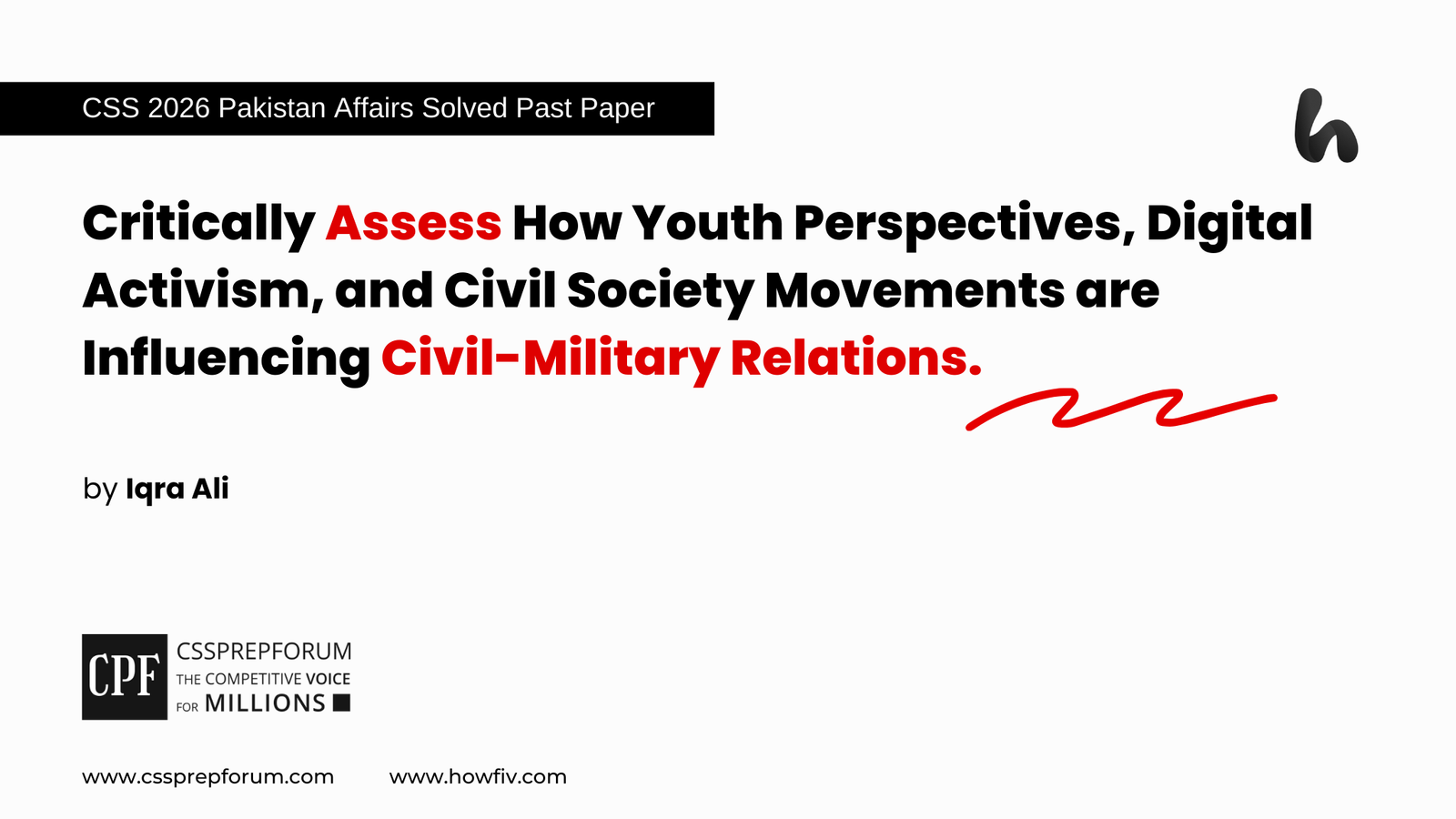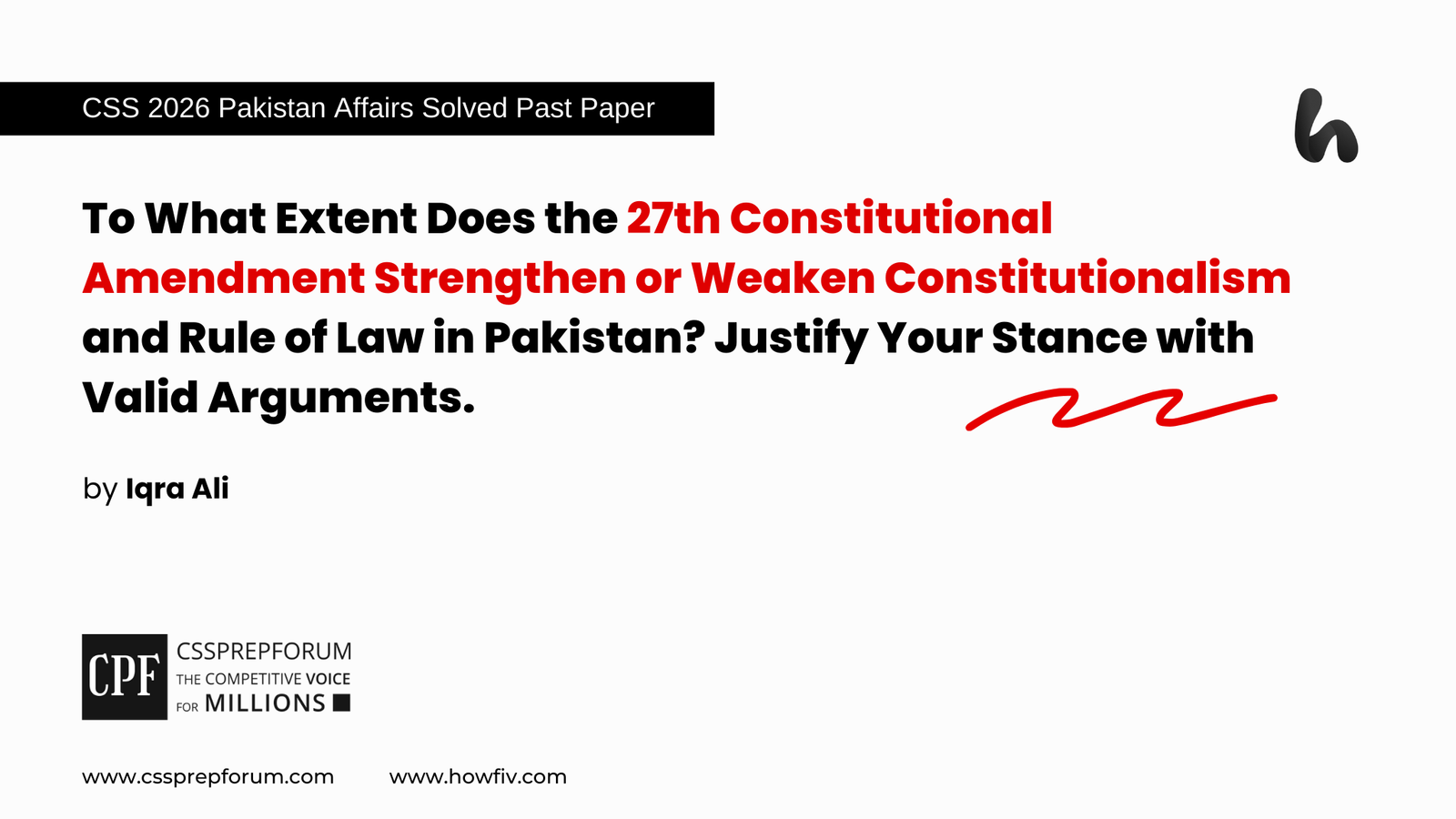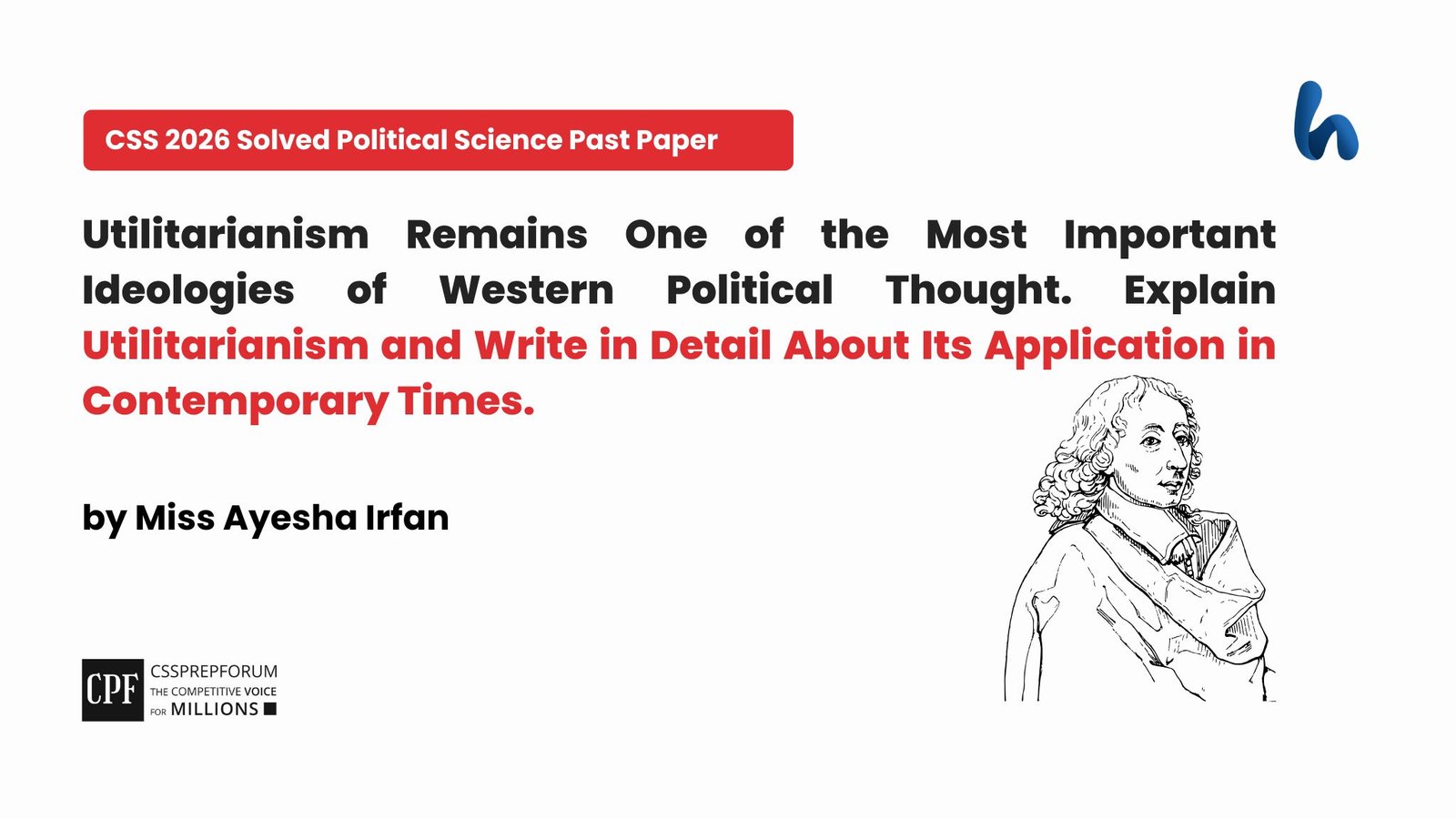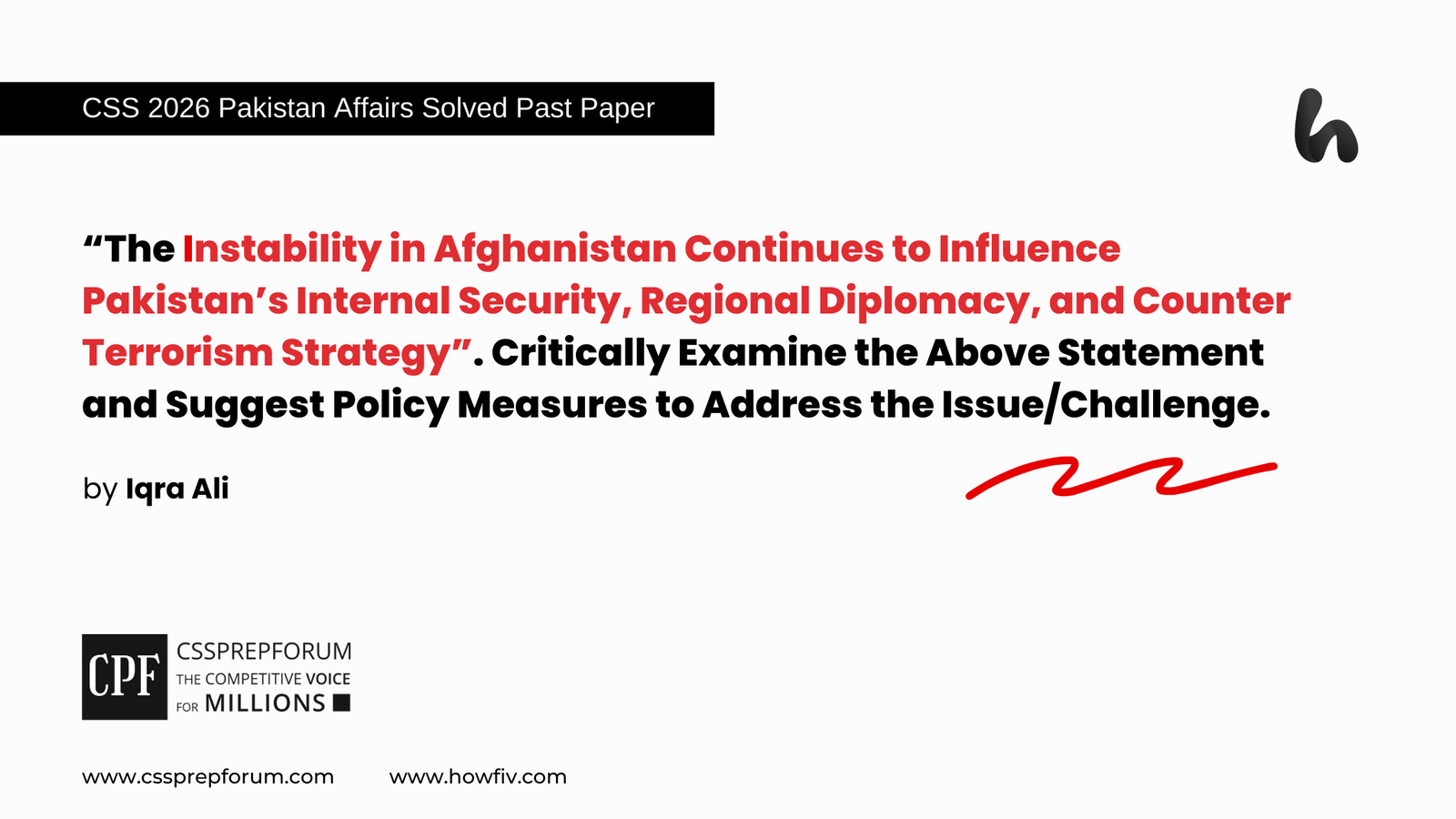CSS & PMS Solved Essays | Implications of Economic Crisis In Pakistan
Areeba Fatima, a Sir Syed Kazim Ali student, has attempted the CSS & PMS essay “Implications of Economic Crisis In Pakistan” on the given pattern, which Sir Syed Kazim Ali teaches his students. Sir Syed Kazim Ali has been Pakistan’s top English writing and CSS, PMS essay and precis coach with the highest success rate of his students. The essay is uploaded to help other competitive aspirants learn and practice essay writing techniques and patterns to qualify for the essay paper.

Outline
1-Introduction
If the economic crisis in Pakistan is not dealt sagaciously, the country might experience crucial implications, including the collapse of the economy, monetary collapse, and security threats.
2-Economic profile of Pakistan
3-Current situation of economic crisis in Pakistan
- Evidence: According to the Centre for the Study of Education in an International Context (CEIC), “The Gross Domestic Product (GDP) in Pakistan expanded 1.7 % in June 2023, following a growth of 4.7 % in the previous year.”
4-Implications of economic crisis in Pakistan
- ✓ Bankruptcy-like situation
- Argument: Economic crisis can lead Pakistan to debt default.
- Evidence: The recent Sri Lankan collapse is the dire consequence of the economic crisis.
- Argument: Economic crisis can lead Pakistan to debt default.
- ✓Monetary collapse
- Argument: Economic stagnation can result in a currency collapse.
- Evidence: Zimbabwe’s monetary collapse happened due to the government’s poor monetary policies, the glaring example
- Argument: Economic stagnation can result in a currency collapse.
- ✓Prolonged droughts and food crisis
- Argument: Economic shocks can push Pakistan into food insecurity.
- Evidence: Like Somalia, Afghanistan, and Chile, Pakistan also facing a food crisis and insecurity
- Argument: Economic shocks can push Pakistan into food insecurity.
- ✓Civil war-like situation
- Argument: Economic disparity can escalate into civil unrest.
- Evidence: The American Civil War of 1861-1865, the dire consequence of economic disparity
- Argument: Economic disparity can escalate into civil unrest.
- ✓Threat to national security
- Argument: Economic downfall can become a reason to cut military strength.
- Evidence: The fate of Pakistan can be the same as Sri Lanka, which has to cut its military spending.
- Argument: Economic downfall can become a reason to cut military strength.
- ✓Chances of becoming a failed state
- Argument: An economic crisis can make Pakistan a failed state.
- Evidence: Syria and Afghanistan, the example of failed states, become unable to reduce economic disparity
- Argument: An economic crisis can make Pakistan a failed state.
- ✓Regime overthrow
- Argument: Economic disparity can lead to regime overthrow.
- Evidence: Pakistan, faced such grim repercussions in the form of the downfall of Ayyub owing to his incompetent economic policies
- Argument: Economic disparity can lead to regime overthrow.
5-Remedies to counter the implications menace of economic crisis
- ✓To re-orient the economy from imports to exports by introducing long-term financing policies
- ✓To promote industrial growth by setting up small-scale industries
- ✓To increase public participation by strengthening civil society
6-Critical Analysis
7- Conclusion

It is indisputable that a solid economic footing is a fundamental prerequisite for a country’s development and prosperity. Unfortunately, Pakistan’s economic downfall has not only tarnished its image but also pushed it to the brink of bankruptcy. As stated by Derek Chen, the Senior Economist of the World Bank, the decline in exports as a share of GDP has severe implications for the country’s foreign exchange, jobs, and economic growth. It is high time that Pakistan confronts the core challenges necessary to compete in global markets. Failure to do so could have dire consequences, including the collapse of the economy, which would severely impact the country’s social, economic, and political fabric. Monetary collapse, security threats, and regime overthrow are just a few of the potential outcomes if the issue remains unaddressed. However, there is still hope. As Atal Bihari Vajpayee aptly remarks, empowering the individual means empowering the nation, and empowerment is the best server of rapid economic growth with rapid social change. It is time for Pakistan to take the necessary steps towards economic revival and empower its people to achieve sustainable growth. The country can fuel its economic development by promoting industrial growth, re-orienting the economy towards exports, and increasing public participation.
Understanding the country’s economic profile, Pakistan’s economy is classified as a developing economy. It is a mixed economic system with free-market activity and government intervention. Further, Pakistan’s economy is the 24th largest in gross domestic product (GDP) based on Purchasing Power Parity (PPP) and the 46th largest in nominal GDP. This Gross Domestic Product is estimated to have contracted by 0.6 per cent in Fiscal Year 2023 after two consecutive years of stellar growth. Besides, Pakistan’s economy is primarily based on agriculture, textiles, and services, with the agricultural sector contributing around 22.25 per cent to Pakistan’s GDP, 19.82 per cent coming from the industry. Above all, over half of the economy’s contribution comes from the services sector, making it a stable nation.
At present, Pakistan is at a critical stage as the country is facing the worst form of economic crisis. It has pushed the country to the brink of bankruptcy and collapse. In addition, Covid-19 has also caused much damage to the already staggering economy. Furthermore, the recent destructive floods in the country have proved the last nail in the coffin, wiping out crops of hundreds of acres of land, and, in turn, increasing the crops’ import. It casts dire consequences on the country’s people’s financial development and social life. According to the Centre for the Study of Education in an International Context (CEIC), “The Gross Domestic Product (GDP) in Pakistan expanded 1.7 % in June 2023, following a growth of 4.7 % in the previous year.” To worsen the situation, foreign investors have declined to invest in the country due to prevailing political instability. Pakistan is still looking towards the IMF for its deals and development programs to avoid the worst circumstances.
If the economic crisis remains corrupted, it can curb Pakistan’s social, political, and economic growth. First, the economic crisis can also lead towards bankruptcy. The state’s inability to pay its debt, a devalued currency, and hyperinflation with the grim shortage of basic necessities: food, medicine, and fuel, can shove the country onto the verge of bankruptcy. Many countries in the world have faced such terrible repercussions of financial crisis. To elaborate, the recent collapse of the Sri Lankan economy 2019-2023 is the ruinous repercussion of the economic crisis. Years of mismanagement toppled by the budget and current account deficits, a devalued currency, a substantial sovereign debt, limited foreign reserves, and the sparked months of public protests jolted the already fragile Sri Lankan economy, making it to declare bankruptcy. This politico-economic collapse is a wake-up call for Pakistan’s government to pay its whopping circular debt and re-structure its economic policies to avoid grave consequences as the situation, if it remains unrectified, can gush it into debt default.
Moreover, the economic crisis has the potential to escalate into monetary collapse. The root of monetary collapse stems from the lack of faith in the currency’s stability to serve as an effective medium of change. The economic stagnation, price volatility, prolonged periods of hyperinflation, and distrust of government monetary policy and authority exacerbate the situation. History has seen and faced the grim implications of the economic crisis in the form of the Mexican currency collapse, the Russian financial crisis, and Zimbabwe’s monetary collapse. In particular, Zimbabwe’s monetary collapse has happened due to institutional corruption, poor economic policy strategies, and a lack of confidence in the government and currency. Moreover, to recover the falling currency, the Reserve Bank of Zimbabwe started printing money, which hyped the inflation rate in the country, increasing monetary uncertainty. This shows that Pakistan cannot control the monetary collapse spiral if the fiscal policy tends toward increased inflation and the financial crisis remains unchecked for long enough.
Furthermore, the failure to curb economic crisis could also result in prolonged droughts and food crises. The devastating combination of natural calamities, soaring food prices, and economic shocks can potentially cause an unprecedented food crisis. Many countries around the globe have faced the distressing aftermath of the food crisis. The food insecurity of Somalia, Afghanistan, Chile, and the Democratic Republic of Congo are glaring examples. In other words, more than 6 million people are expected to face emergency levels of hunger this year, including 300,000 people facing life-threatening hunger in Somalia. The country is experiencing its longest drought in over 40 years. The concerning situation is fueled by a protracted economic crisis that ranks Somalia last in the 2021 Global Hunger Index. And the country ranks 116th out of 116 countries, pushing it into one of the most complex humanitarian crises in the world. Such a grim situation could be Pakistan’s fate if the economic crisis continues to accentuate.
Another implication of economic crisis can manifest in civil war, the war between the factions within the state trying to interfere in the state’s economic and political affairs. For example, situations like economic inequality, shattering public confidence in the government’s institutions, and feelings of economic alienation can escalate into civil unrest in the form of strikes, protest marches, demonstrations, and riots in Pakistan. Many countries in the world have faced the dire consequences of economic crisis. To illustrate, the outbreak of the bloodiest conflict in the history of America is the repercussion of economic disparity, resulting in the Civil War of 1861-1865 between the Southern slave economy and the Northern economic leviathan. This was the grave consequence of the economic clash between the parts of America. Such an outrageous situation could be Pakistan’s fate if the economic crisis remains unresolved.
Moreover, if the economic crisis remains unresolved, it can also harm the state’s national security. Owing to the financial crisis, the state can become unable to pay for the weaponry to defend its region and space, which can deter its integrity. There are many developing and underdeveloped countries in the world that are facing the grim ramifications of the economic crisis. To explain, the bankruptcy of Sri Lanka has caused it to cut military strength. Amid the ongoing economic turmoil crippled by the shortage of foreign exchange reserves, the country was unable to pay for fuel, food, and other necessities, which, in turn, made it slash the military by reducing its strength. Therefore, the worst economic situation can make Pakistan cut its military budget, allowing antagonist elements to come into play. Thus, the harrowing situation can threaten Pakistan’s national security.
Similarly, the economic dilemma can also become a reason for Pakistan to be declared a failed state. The state’s inability to harness economic and political problems, protect property, and maintain its control over territory can obscure its image, making it a failed state. The situation will make the country vulnerable to external and internal threats, including a variety of riots, a plethora of defiance, and security threats from terrorists and neighbouring states. In particular, over a decade of civil war has made Syria a failed and collapsed state that has lost control of large parts of its territory and borders. After 2000, it underwent limited economic liberalization, which created competition for the already dwindling public resources and deepened socio-economic inequalities. The war also destroyed the agricultural economy and reduced its per capita income, making it fulfil the indicators of a failed state. Hence, such a distressing future can become Pakistan’s fate if its economic issues continue to increase.
In addition, decreased economic stability can also lead to regime overthrow. When a state does not meet the demands of its people and their basic needs and necessities are not fulfilled, aggression is aired in the people, resulting in protests, demonstrations, and riots, which ultimately lead to regime overthrow. Pakistan has already undergone the harsh consequences of the economic crisis. For example, the fall of Ayyub Khan, Pakistan’s former President, was caused mainly by his economic policies that led to inflation, unemployment, and the concentration of wealth in a few hands, causing widespread misery in the populace, thus leading to his downfall. His people nullified his economic achievements, and economic policies were rejected as they were not based on the principles of equality and interdependence. Thus, history may repeat itself if the current financial problems are not addressed.
To ameliorate the economic crisis, Pakistan should adopt immediate efforts to stabilize the country’s economy and guard against the implications of economic meltdown. First and foremost, Pakistan should re-orient its economy from imports to exports, which will result in an outflow of foreign capital. By strengthening exports and lowering imports, the country can recover from the economic depression. For instance, once suffering from an economic crisis, Finland has successfully overcome it by exporting various industrial and artisan products. Thus, setting up cottage industries and implementing a long-term and multi-pronged strategy will upgrade firms’ productivity and foster quality and innovation, maximizing export potential. Hence, Pakistan can develop economically by exporting furnished goods through long-term financing facilities.
Second, the Government of Pakistan should set up small-scale industries to help economic development. With the help of industries, the country can create enormous job opportunities and improve the quality of products. Industries can also help mitigate poverty, unemployment, and other social crimes. According to the Wollongong Research Centre, the contribution of small-scale sectors to India’s economy has played a more significant role in employment growth, production, and export promotion. For this, Pakistan should increase funds for the infrastructure and development of industries. Besides this, it should also promote a conducive business environment to spur the growth of competitive industries. In conclusion, Pakistan can alleviate the economic crisis by setting up industries.
Lastly, public participation in the country’s politics should be encouraged at all levels. Politicians play a significant role in developing and implementing economic policies, and most of the time, politicians misuse their authority for their vested political interests. Hence, the country can stabilize the politico-economic conditions by strengthening civil society and educating citizens who can hold politicians accountable for their wrongdoings. As Abraham Lincoln said, “We, the people, are rightful masters of Congress and the courts.” Pakistanis have to come to the forefront to fight for their politico-economic rights by raising their voices for their rights, exemplifying public participation. Thus, public participation and awareness should be increased to nip the economic crisis.
In a critical diagnosis, the economic crisis can become life-threatening for Pakistan’s international standing. The country currently faces the threat of default and can face dire consequences if the economic situation remains unresolved. Unfortunately, the government is still looking towards the International Monetary Fund (IMF) for a loan instead of building its capacity to avoid the catastrophic repercussions. However, Pakistan can achieve economic growth by investing in its resources and human capital. Therefore, there is a ray of hope that Pakistan will move on the economic development road by adopting specific pragmatic measures.
In conclusion, the implications of the economic crisis are harrowing and alarming. If the evil remains proliferating, this can lead to grim implications for Pakistan, threatening its sovereignty. For instance, monetary loss, natural disasters, and anarchy, are the overriding consequences of the economic crisis that the country can face. Moreover, security dilemmas from terrorists and neighbouring countries may also become the fate of Pakistan if the evil will not be nipped in the bud. Therefore, to escape its self-inflicted crisis, the government must revamp its sustainable economic policies, set up small-scale industries, and increase public participation.

CSS Solved Past Papers’ Essays
Looking for the last ten years of CSS and PMS Solved Essays and want to know how Sir Kazim’s students write and score the highest marks in the essays’ papers? Then, click on the CSS Solved Essays to start reading them.
CSS Solved Essays
CSS Solved General Science & Ability Past Papers
Want to read the last ten years’ General Science & Ability Solved Past Papers to learn how to attempt them and to score high? Let’s click on the link below to read them all freely. All past papers have been solved by Miss Iqra Ali & Dr Nishat Baloch, Pakistan’s top CSS GSA coach having the highest score of their students. General Science & Ability Solved Past Papers











